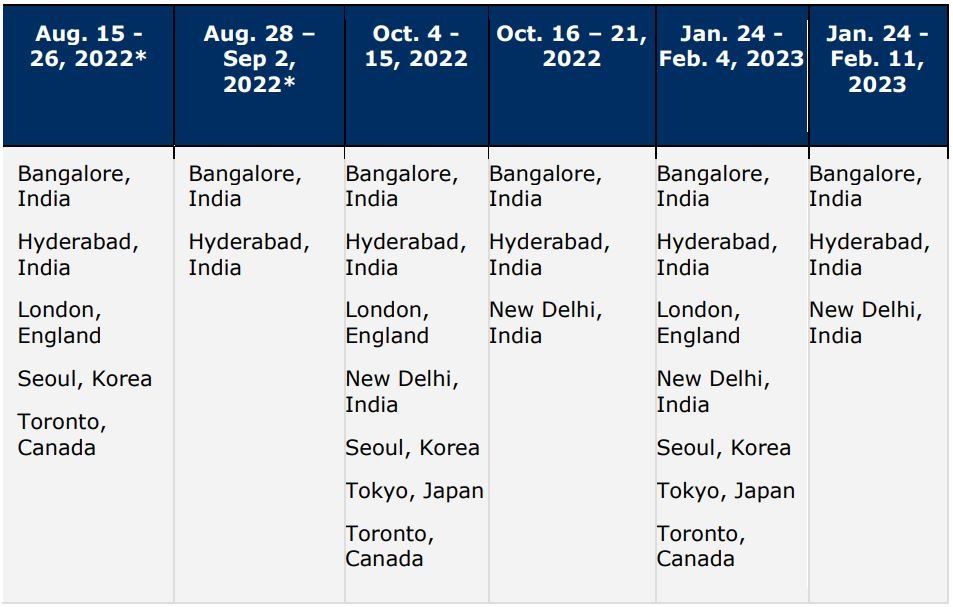New! Amazing Self-Paced Courses You Can Start Every Month!
An Enrolled Agent (EA) is a federally licensed tax preparer. This means that they are legally permitted to represent taxpayers before the IRS thanks to the licensure that they received from the US Department of the Treasury. The exam itself is run by the Internal Revenue Service (IRS.)
Once acquired, EAs have unlimited practice rights. This means that they can represent any taxpayer they choose. As with a CPA license, applicant must also meet certain requirements before they can apply for licensure.
An enrolled agent is able to represent their taxpaying client before the IRS. They can usually represent whichever taxpayers they would like to, whatever types of tax matters they can handle, and can represent their clients before most IRS offices. Their tasks include:
An EA is not permitted to compile, review or audit financial statements.
The main reason for becoming an EA is that it allows the license holder to represent their client before the IRS, which is something that a regular accountant cannot do. The study material is highly specialized, making the degree and the license is issued through the IRS, both of which make it a prestigious license. Although an EA cannot perform auditing functions like a CPA can, it requires less investment than a CPA license does in terms of the educational, work experience and CPE requirements that a CPA is obligated to fulfill both to acquire the license and to retain their license.
An extra license or certification is useful in public accounting especially, as license holders generally receive higher pay than unlicensed accountants. They are also more likely to be considered for promotions and high-levels positions, especially in public accounting.
Acquiring an EA license entails passing all three parts of the Special Enrollment Examination (SEE) through a Prometric testing site. All three sections of the exam must be passed within a 2-year period. If one fails to pass the third part within 2 years of passing the first part, they will need to retake the first part as well. However, they do make exemptions for issues caused by covid. Once they pass all three sections and pay the necessary fees, the applicant will be issued a Preparer Tax Identification Number (PTIN) by the IRS, and they can begin practicing.
Applicants do not need a college degree or work experience to qualify for licensure. However, they will be required to submit to a suitability check, meaning that they will need to submit their fingerprint to be screened for a criminal background check, and to verify that they are up to date on their tax returns. Specifications on study materials can be found on page 6 of the IRS SEE Candidate Information Bulletin. The Bulletin contains a lot of other useful information as well. Some IRS employees can also receive exemption from taking the exams on the basis of IRS work experience.
The EA exam can be taken at any prometric testing center in the US at any time during the testing window. If you fail a part, you will need to wait at least 24 hours before you can reschedule. You can only take each section four times within a testing window. Usually, a testing window is from May 1st until the end of February. This means that there is a two-month period during which exams cannot be taken. Each exam part is 3.5 hours long, excluding the 15-minute introductory tutorial and 15-minute break. The exam parts can be taken in any order.
Outside of the US, there are six exam windows held in prometric centers in the following countries:

The three parts of the EA exam are:
The full exam guidelines can be found here.
Different course providers will recommend dedicating different hours of study towards each part of the EA exam. This is generally between 40-85 hours per part, wit h the second part requiring the least number of hours. Additionally, the amount of experience you have in taxation, such as by working in public accounting or for the IRS will also affect how much preparation you need for each exam part.
Exam fee
Scheduling fee: Each part of the exam costs $203.00 USD. You will need to pay this for each re-attempt as well.
Enrollment fee: $67.00 USD
Rescheduling fee
More than 30 days prior: No fee
Less than 5 – 29 days prior: $35.00 USD
Less than 5 days: full exam fee amount
According to Payscale, enrolled agents generally earn an annual salary of between $30,000 – $81,000 USD per month, at an average of $52,275 USD.
Although may enrolled agents do work for the IRS, they are not obligated to do so. An enrolled agent can be self-employed or work for an organization that is not the IRS.
An enrolled agent needs to renew their license renew their license between November 1st and January 31st annually. This entails paying the $67.00 USD renewal fee and meeting the minimum annual continued professional education (CPE) requirement of 16 at least CPE hours. Altogether, an EA is required to accrue 72 total hours of CPE every three years, including 2 hours of an ethics course. CPE can only be acquired through programs approved by the IRS. Failure to renew one’s EA license by the end of March will result in either termination of inactivation of the license depending on the circumstances. They will not be able to practice until their license is reactivated.